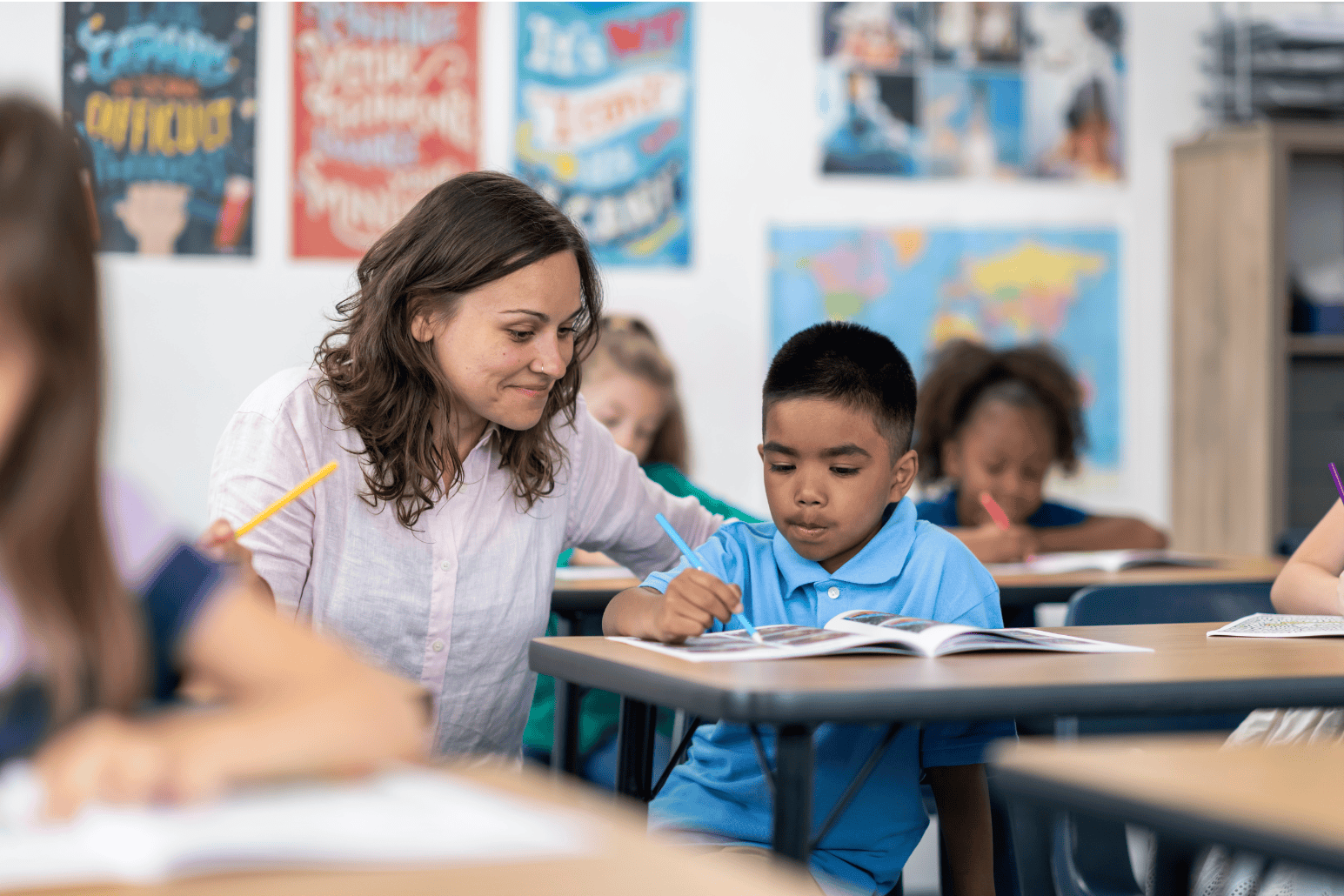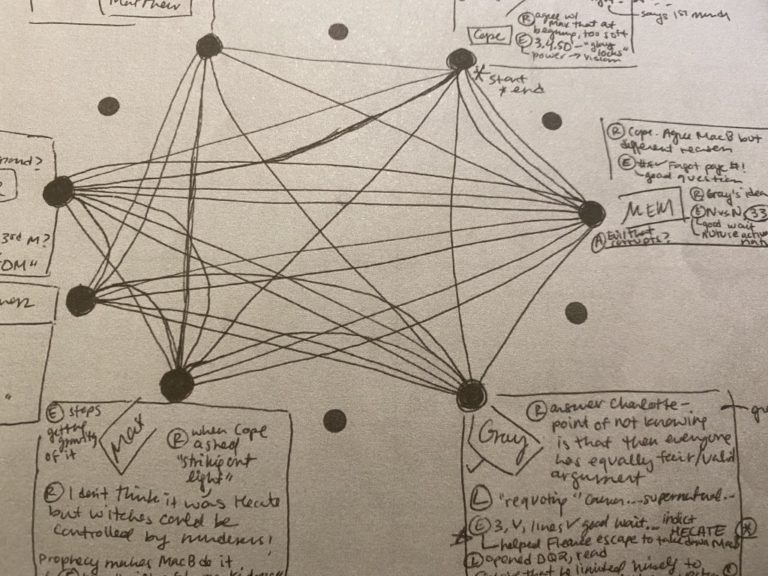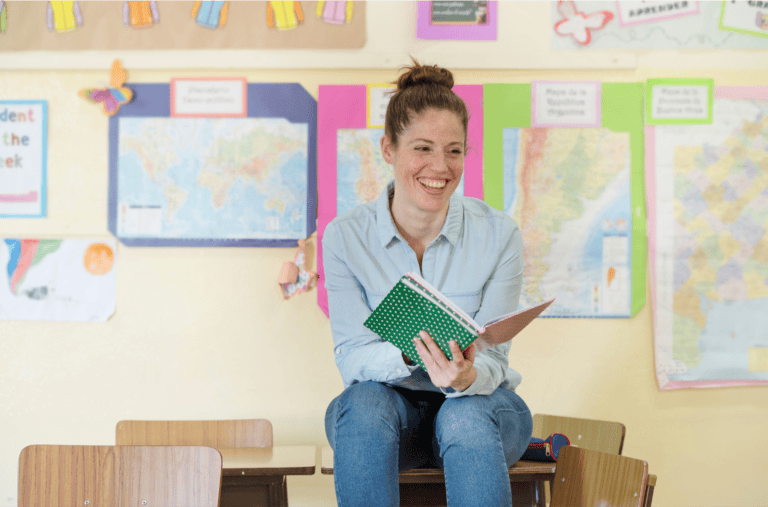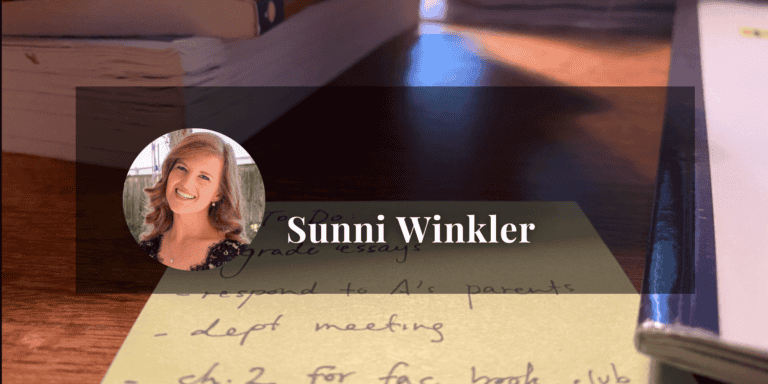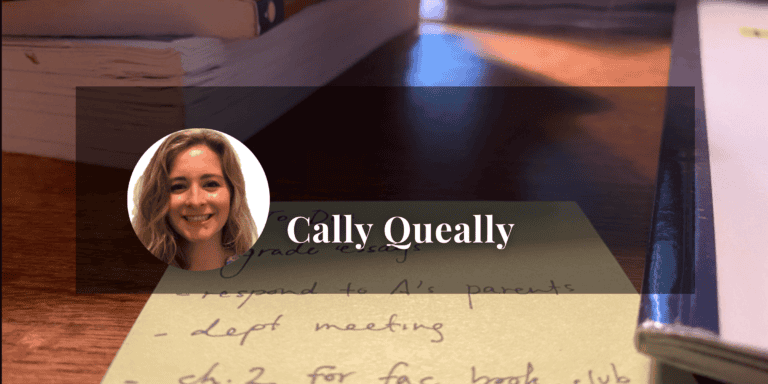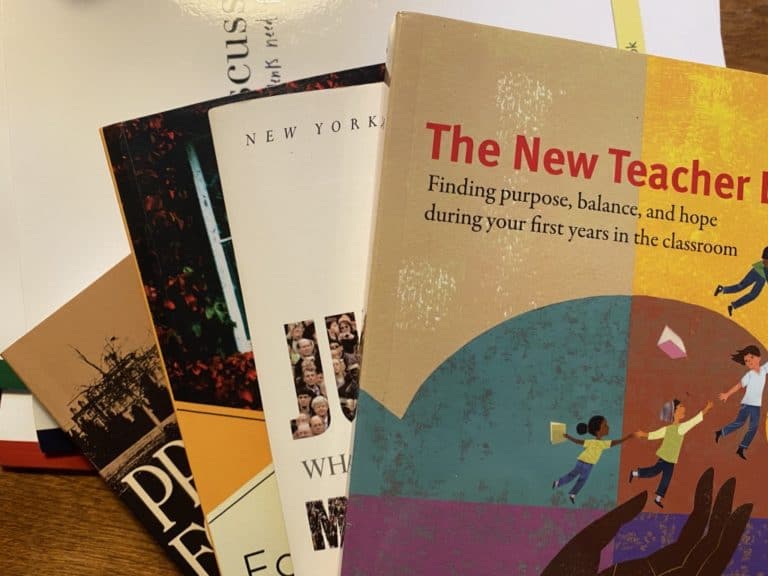REAL Teacher Feature: Weesie Cook
Thank you to Weesie Cook for sharing her REAL life with us! Weesie is an English teacher at McCallie School in Chattanooga, Tennessee. Here are her thoughts on discussion, R.E.A.L.®, and learning.
Hometown: I live in my hometown in Chattanooga. I went to GPS (Girls Preparatory School), which is the sister school to McCallie. So, this is home for me.

Current City, School, Teaching Assignments:
I live a little outside Chattanooga, in Signal Mountain. I am the 6th grade English teacher at McCallie School. The core teachers teach all of the students in the grade. I love having all of them. I think that’s a nice thing, and it provides some continuity for our students.
Describe yourself as a student in three words:
Curious, reluctant, and a pleaser.
Who was your favorite teacher and why?
I had a high school teacher in my junior year who taught Bible, and she was a wise teacher who had been there for a long time. Her class was Bible, but it was taught from a historical perspective, and there was also a lot of English language in it. I loved her course, and she was just really inspiring. I worked at GPS when I moved back to Chattanooga, and she was still teaching there, so she became a mentor to me.
When it comes to class discussion, what is your “why”?
I was thinking about how the kids I’m teaching are so eager. They love to speak, and there’s always constant chatter in the hallway. What I have realized this year is what a tool R.E.A.L.® can be for harnessing something that they already enjoy doing. They already enjoy speaking and talking and bouncing ideas off of each other, so it’s kind of like taking something that they’re already doing and helping them use it to apply to what we’re learning in class and take it to a deeper level.
And, it’s certainly a life skill. Learning how to talk and listen and share ideas, and disagree and agree … I think it’s a lifelong skill too.
Take us back to the first R.E.A.L.® Discussion you led – what were you worried about going into it? What surprised you about it?
I wasn’t sure if I grasped all of the details. I found myself kind of tiptoeing in. What I realized was how quickly they picked up those details and just kind of ran with it. We all learned together.
The first one I did, we kind of kept it short, and that was fine. I controlled it a little bit because I cut it short, instead of letting them decide when to pause and do notes. A bit of improvising … but it worked better than I even thought that it would.
How do you orient your students to R.E.A.L.®? What advice would you give to a teacher on the cusp of starting their first discussion?
It was hard, because it just didn’t seem like they were getting it when we were talking through it and they were doing the orientation. When we were looking through the workbook, they had a lot of questions. And so I think the best advice – which someone gave me, actually and which I would continue to give – would be to just jump in and do it, because at some point you just learn by doing. I think it’s sort of like when you’re playing a board game and you get bogged down in all the details and the questions, and sometimes it’s just better to play. You can refer back to the rules, but you don’t have to have them all down before you start playing.
How do you go about planning for a R.E.A.L.® discussion? What have you figured out about the types of texts, DQs, or structures that work well for your students?
One thing about the pre-work: I’m always a little nervous about sending students home with something. There are several kids who will not come back with it. So, we’ve done all of the pre-REAL in class, and I actually think that’s been fine. I’ve tried to break it down to the two classes before we do a R.E.A.L.® discussion, I’ll give them time on both of those days.
It also gives me a chance to walk around and ensure they’re taking the time and writing some thoughtful things down. It’s something that is challenging for some middle school boys. If you don’t stand there and watch them, they’ll take short cuts. They often don’t really like to take the time to write it out.
In terms of questions, I’ve tried to keep the questions really simple and basic, and I think that’s worked. I’m working on getting better at coming up with good questions for them.
When it comes to discussion, what are your top 3 learning goals for your students?
I love the “relate” aspect of R.E.A.L.®. I think it’s really neat when they can relate to something. When initially they ask, “Why are we reading this,” but then we can talk about it and they can say, “Oh, I do relate to this. I can see how this relates to a story that my grandfather told me,” or whatever. I love that. I love that they are practicing listening, because that is something that they don’t always know how to do skillfully.
Also, I think, listening and sharing ideas. I also like to allow them the opportunity to hear from and get to know each other, because they are all new to McCallie at the beginning of the year.
Can you think of a moment you’ve experienced this year or last where a student had a breakthrough during a discussion? What did it look like? How did that feel as a teacher? Did you see it have an impact on the other students?
I expected some of the more reserved kids to have the opportunity to speak when they were in smaller groups. I had a student who is quiet in larger groups, so I hadn’t heard much from him at the start of the school year. When we started doing R.E.A.L.®, I saw that he had thoughtful things to say – I expected him to have thoughtful things to say, and I expected him to speak more in a small group. But it was really neat, because he sort of took a leadership position, saying things like, “Now, we haven’t heard from you…” I thought, I can’t believe this student is taking on that role. So that was really neat, and that changed the way I looked at and viewed him, and I think that probably, for the other kids in the class, maybe it shifted something in the way they viewed him. That was probably my favorite moment.
I hope it changed the way he saw himself. This is a kid who came to McCallie all on his own. Perhaps he’d just been holding back, so hopefully he sees himself gaining some confidence.
What inspires you? Do you have a favorite quote right now?
We just started reading John Lewis’s book March, and I recently read a quote by John Lewis that I thought was inspiring: “You must be bold, brave, and courageous and find a way to get in the way.”
What’s next for you and your class? Where do you hope to take R.E.A.L.® in 2023?
We’re reading March. We’re talking about the Civil Rights Movement in English and history; this unit is probably one of the most perfect ones for discussion, because students get really passionate about it. So, incorporating R.E.A.L.® Discussion into the unit is my plan … and to work with the McCallie history teachers who are also using R.E.A.L.®
